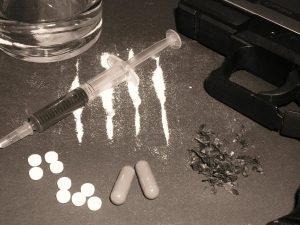 In a recent decision – Commonwealth v. Martinez – the Supreme Judicial Court applied the holding of Nelsonv. Colorado, 137 S.Ct. 1249 (2017) and “provide[d] guidance to trial courts and litigants regarding the repayment [to a defendant] of probation fees, victim-witness assessments, restitution, fines, forfeitures, and court costs after a conviction has been invalidated.”
In a recent decision – Commonwealth v. Martinez – the Supreme Judicial Court applied the holding of Nelsonv. Colorado, 137 S.Ct. 1249 (2017) and “provide[d] guidance to trial courts and litigants regarding the repayment [to a defendant] of probation fees, victim-witness assessments, restitution, fines, forfeitures, and court costs after a conviction has been invalidated.”
The background was as follows. In Nelson, “the United States Supreme Court held that ‘[w]hen a criminal conviction is invalidated by a reviewing court and no retrial will occur,’ the State is required under the due process clause of the Fourteenth Amendment … ‘to refund fees, court costs, and restitution exacted from the defendant upon, and as a consequence of, the conviction.’ There can be no doubt that, because of this controlling authority, Massachusetts courts are required to order” such refunds after the invalidation of a defendant’s conviction. In the present cases, defendants Martinez and Green sought refunds … after their drug convictions were vacated and their indictments were dismissed with prejudice pursuant to Bridgemanv. District Attorney for Suffolk Dist., 476 Mass. 298 (2017), because the convictions were tainted by the misconduct of [state drug laboratory chemist] Annie Dookhan.” The two cases “present ten reported questions regarding the scope and application of the due process obligations established in the Nelsondecision. [The SJC] reformulated the reported questions into three broader questions.”
In its decision, the SJC “address[ed] each of the reformulated reported questions.” Question 1: “What is the scope of the due process obligation to refund money paid by a defendant ‘upon, and as a consequence of’ a conviction that has been invalidated?” Response to question 1: (a) Probation fees. “Here, all of the counts for which both defendants were sentenced to probation have been invalidated. As a result, all paid probation fees [under G.L. c.276, §87A] must be refunded.” (b) Victim-witness assessments. “As with probation fees, … the victim-witness assessment [paid] under G.L. c.258B, §8,” must be refunded. (c) Restitution. “Due process requires the refund of restitution.” “Because the restitution here was paid [by Martinez] to the Haverhill police department and has been repaid, we need not decide whether Nelsonrequires the Commonwealth to refund restitution paid by a defendant as a consequence of an invalidated conviction where the restitution was paid not to the Commonwealth, but to a private victim.” (d) Fines. “Green is … entitled to a refund of fines and surfines” that she paid as part of her sentence. (e) Forfeiture. “Green is not entitled to return of … forfeited funds because forfeiture … ‘is outside the scope of the criminal matter and constitutes a civil proceeding.’ Commonwealthv. Brown, 426 Mass. 475, 480 (1998).”
Question 2: “What is the procedure to be used to determine a defendant’s entitlement to a refund and the amount to be refunded, and who bears the burden of proof?” Response to question 2: “We set forth this procedural guidance under the due process protections implicit in art. 12 of the Massachusetts Declaration of Rights,” in order “to ensure that this process is followed in Massachusetts courts even if the Supreme Court were to declare that procedures that place greater demands or obligations on defendants seeking refunds are acceptable under the Fourteenth Amendment. First, a defendant seeking a refund must file a motion for refund in the [trial] court.” “Where the refund or its amount is disputed, the [trial] court shall … determine whether the Commonwealth has met its burden to show, by a preponderance of the evidence, that the defendant is not entitled to the refund amount requested in his or her motion…. If the court finds that a refund in any amount is proper, it shall issue a refund order.”
Question 3: “Where a judge determines that a defendant is entitled to a refund, how will payment of the refund be accomplished?” Response to question 3: “It [is] the responsibility of the courts to order [refunds] where due process so requires. And the source of payment for such refunds [is] the Commonwealth, generally its general fund.”
The SJC noted that the “constitutional due process obligation” set forth in Nelson“comes at a challenging time for the Commonwealth. Drug convictions in more than 21,000 cases have been invalidated as a result of the misconduct of Annie Dookhan …, and drug convictions in thousands of other cases have been invalidated as a result of the misconduct of Sonja Farak.” “We have given careful consideration to whether we need … to craft [a] global remedy addressing the many thousands of ‘Nelson’ refund motions that may be brought by the so-called Dookhan and Farak defendants. The parties … have asked us to refrain from doing so pending the anticipated settlement of a putative class action brought in the United States District Court for the District of Massachusetts that seeks … the refund of fines, fees, court costs, and restitution paid as a result of invalidated drug convictions by the putative class of Dookhan and Farak defendants. Fostervs. Commonwealth of Mass., U.S. Dist. Ct., Civ. No. 18-10354-IT.”
If you or a loved one was impacted by Annie Dookhan’s malfeasance, you may be eligible for a refund of fees, fines, or other assessments. You will need an attorney familiar with the developments in the case law to make sure that you are made whole again. Attorney Daniel Cappetta is such an attorney – he is well versed in drug lab issues and has worked hard to make sure that his clients that have been wronged in the drug lab scandal receive the outcome and compensation they deserve. Contact him for a free consultation today.
 Massachusetts Criminal Lawyer Blog
Massachusetts Criminal Lawyer Blog

